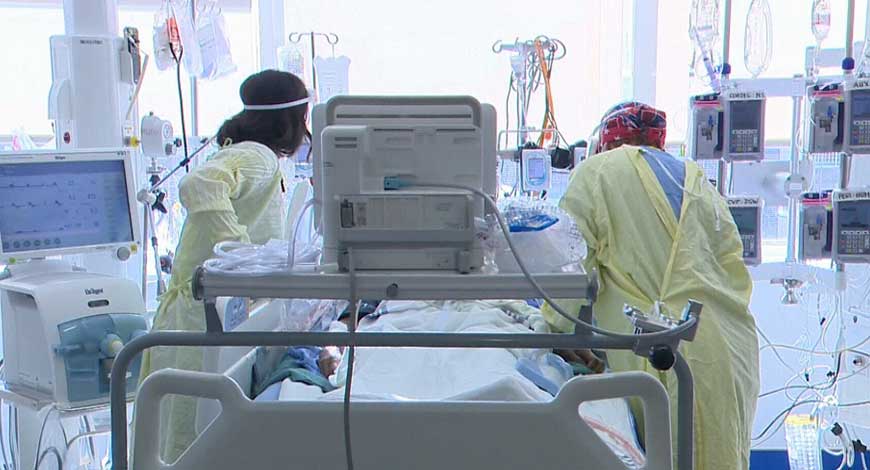The U.S. government is providing $45 million in grants to support the development of new care models and enhanced access at clinics treating long COVID, as announced by the Department of Health and Human Services (HHS) on Wednesday.
The Agency for Healthcare Research and Quality (AHRQ) within HHS will distribute annual grants of $1 million each to nine clinics for the next five years.
In response to President Joe Biden’s directive last year, HHS was tasked with creating a national action plan to address long COVID, a complex condition characterized by multiple symptoms that persist for months after a COVID-19 infection, often rendering patients unable to work.
HHS Secretary Xavier Becerra stated, “The Biden-Harris Administration is supporting patients, doctors, and caregivers by providing science-based best practices for treating long COVID, ensuring access to insurance coverage, and safeguarding the rights of workers as they return to employment while managing the uncertainties of their illness.”
The funding will facilitate the expansion of in-person and virtual appointments, the establishment of new satellite clinics, and an educational initiative designed to increase referrals. Limited awareness and acceptance among healthcare providers have contributed to delays in diagnoses and referrals.
The grant will also support social services, the hiring of interpreters, group patient programs, and behavioral health assistance. Priority will be given to ensuring access for underserved, rural, vulnerable, and minority populations disproportionately affected by long COVID.
Approximately 7% of all U.S. adults and 2.3% of the entire population are impacted by long COVID. An analysis conducted in April by the Solve Long COVID Initiative, a non-profit research and advocacy group, estimated the condition’s cost at $386 billion in terms of lost wages, savings, and medical expenses.
Long COVID encompasses over 200 symptoms, including severe fatigue, cognitive difficulties, headaches, dizziness upon standing, sleep disturbances, chest pain, blood clots, immune system dysregulation, and even diabetes. While no proven treatments are currently available, research is ongoing. The National Institutes of Health (NIH) is leading the $1.15 billion RECOVER program, which initiated two clinical trials in July to evaluate at least four potential treatments.




